Our Position Statement in response to recent media scrutiny of Australia’s Strata Industry.Click Here
Frequently Asked Questions
Our clients value our ability to effectively solve problems and provide the answers to a range of challenges, situations and circumstances.
Here are some questions we are frequently asked.
If your question isn’t here or you'd like to speak with one of our caring staff directly, we are here to help: Contact SELECT.
What is an Owners Corporation?
An Owners Corporation (formerly body corporate) manages the common property shared between property owners in a residential, commercial, retail, industrial or mixed-use property development. Common property is defined as any property not on title to any one owner include stairs, paths, elevators, lobbies, driveways, pools, common garden areas and other facilities set up for use by owners and occupiers. More than one Owners Corporation can be created in a subdivision of land or buildings, where shared property is shared differently between owners.
The Owners Corporation Act (2006) came into effect on 31 December 2007 and sets out the duties, powers and obligations of Owners Corporations. The Act was further amended and changes came into effect 1st December 2021.
Do I have to be a part of the Owners Corporation?
If you own property affected by an Owners Corporation then you become a member of that Owners Corporation automatically. As a member, you have legal and financial responsibilities to the Owners Corporation.
Responsibilities of an Owners Corporation
An Owners Corporation must:
- Manage and administer the common property
- Repair and maintain the common property, fixtures and services
- Take out and maintain required insurance
- Raise and collect fees from the lot owners to meet financial obligations
- Establish an annual budget, prepare financial statements and keep financial records
- Provide Owners Corporations certificates when requested
- Keep an Owners Corporation register
- Establish a grievance procedure.
It must also:
- Carry out any functions and duties under the Owners Corporations Act (2006), the Owners Corporations Regulations 2018, the Owners Corporation rules and any other law or regulation
- Ensure compliance with the Act, the Regulations and the rules.
What is the structure of an Owners Corporation?
The Owners Corporation operates at four levels:
- The Owners Corporation, consisting of all the lot owners.
- The Committee, consisting of elected lot owners or lot owners’ proxies.
- A delegate of the Owners Corporation. For example: The Chairperson, the Secretary, a Committee Member, a lot owner, or an employee of the Owners Corporation.
- A delegate of the Committee. The Committee may delegate to a lot owner, a manager or sub delegate to a member of the Committee.
The Owners Corporation (all the lot owners):
- Keeps control of all decision-making
- Can delegate powers, but only for matters that do not require a unanimous or special resolution or that are required to be dealt with
- Can overturn an earlier decision of the Owners Corporation. Only the Owners Corporation can do this
- Can appoint sub-committees to advise the Owners Corporation. Sub-committees cannot make decisions.
The Committee:
- Can make decisions on all matters delegated to it by the Owners Corporation except on matters that the Owners Corporation has determined must be decided at a general meeting.
A delegate:
- Can make decisions within the limits set by the Owners Corporation
- Cannot overturn a decision of the Owners Corporation or the Committee.
Role of Chairperson and Secretary
An Owners Corporation Committee must elect a Chairperson. This person also becomes the Owners Corporation Chairperson.
Your Committee may not be legal if it fails to elect a Chairperson, whose role is to run meetings in a way that encourages decisions. For more information about the Chairperson’s role, view CAV’s Chairperson – Owners Corporations page.
An Owners Corporation must also have a Secretary, who is responsible for tasks including managing correspondence and organising meetings. For more information about the Secretary’s role, view CAV’s Secretary - owners corporation page.
All Owners Corporations, Committees and delegates are required to:
- Act honestly and in good faith
- Exercise due care and diligence in carrying out their functions, powers and activities
- Not make improper use of their position to gain, directly or indirectly, an advantage for themselves or for any other person.
Decision-making in Owners Corporations
Your Owners Corporation makes a decision or resolution when its members vote at a meeting or by ballot.
Votes are based on lots or lot entitlements, not by the number of individuals living in or owning a lot. This means:
- A person who owns more than one lot has more than one vote
- If two people own one lot, they only have one vote between them.
- Decisions can be made by ordinary, special or unanimous resolutions, each requiring different percentages of the total votes.
For more information about the decision-making process for an Owners Corporation, view CAV’s Owners Corporation meetings page.
Is my maintenance problem an Owners Corporation problem?
It’s very important to understand that not all maintenance problems are Owners Corporation-related.
For example, if your private appliances such as heater, air conditioner, oven etc breaks down, please contact your managing agent or service provider. This is considered a private maintenance issue and the Owners Corporation has no role to play in its rectification.
On the other hand, security gate malfunctions, lift faults, impact damage, hallway lighting, blocked sewers and fallen trees are examples of issues your Owners Corporation will handle.
The best way to think of it is to ask: “Does this affect my building’s common property or services?” Problems relating to common property are Owners Corporation issues.
By the way, although we’ve all done it, locking yourself out of your apartment is not an Owners Corporation matter!
What do I do if I have an after-hours emergency?
For after hours emergencies Tymaline Building Services are available on 0418 362 023.
Please note, if the matter is not an Owners Corporation emergency you may be charged either a minimum call out fee of $360 or a minimum service fee for taking your call after hours of $40.
How do I organise property maintenance?
If your property is registered to SELECT's management and communication platform app, SELECT SC, please lodge your maintenance through the app.
If you need assistance with an urgent repair, please see the section 'Need help?' on our 'Contact Us' tab on our website.
Alternatively, please click here and complete the contact form provided. We’ll be in touch shortly.
Can I receive my Owners Corporation correspondence by email?
Yes. We encourage all Owners Corporations and their lot owners to use email as the principal means to obtain their official correspondence from us.
To get this facility underway please click here and register your email details with us, agreeing to the provisions for electronic communications.
Who is my property manager at SELECT?
Please refer to your latest levy notice. Your strata manager’s name and contact details are on the top right-hand corner of your notice.
Why have I been charged an Owners Corporation levy?
Owners Corporation levies are a legal requirement of living in a property covered by an Owners Corporation, and cover the cost of maintaining, insuring and improving your building’s common property based on the budget set by your Owners Corporation at a general meeting.
Special levies may be raised to cover unexpected events including emergency works and legal matters which may arise or other extraordinary works not covered in the budget.
Why have my levies changed?
Your levies may have changed as a result of adjustments to your building’s budget as agreed at the Annual General Meeting. Levies may also be increased because interest has been charged due to late payment or special levies have been raised for unforeseen circumstances.
There have been important changes to DEFT payments made at Australia Post.
To reflect recent price increases by Australia Post, from 1 October 2016, there will be a $2.75 processing fee charged for any DEFT payments made at Australia Post outlets.
You will be charged this fee at the time of payment, for example if your levy is $100.00, when you make a payment at Australia Post, $2.75 will be added and you will be required to pay $102.75.
Why is this happening?
There are higher costs involved with making a payment at Australia Post due to the manual over the counter nature of processing payments. Australia Post has increased their costs over time, which has resulted in the decision to introduce this fee to payers.
What options are available to me?
For alternative DEFT payment channels, we encourage you to choose one of the many options highlighter at the bottom of your levy notice, such as BPAY®, direct debit or credit card.
What are my options for paying levies?
Please refer to our PAYMENTS page where you will find a range of convenient and easy payment options.
Ready to change?
Thank you for choosing SELECT. To request an individually tailored proposal online, simply click on the button below.
General Enquiries
Please click on the button below and a member from our team will be in touch with you soon.

SELECT the best
SELECT provides you with a streamlined and simple transition pathway when the time comes to change your Owners Corporation manager and make the switch to SELECT.

© SELECT Strata Communities 2024
Website by SILVERLANE™ Digital Marketing by Clearwater Agency

